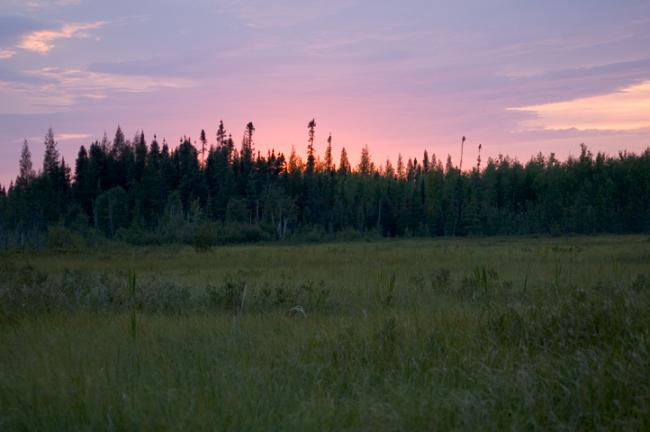Peat mines OK'd despite Manitoba ban
CBC.ca

Three peat mining companies were authorized to level thousands of hectares of Manitoba's boreal forest, just days after a provincial peat mining ban took effect last summer, and over the objections of the government's own experts.
The Save Lake Winnipeg Act became law on June 16 and prevents the province's Mining Department from issuing new leases for peat lands.
But three corporate entities — Sun Gro, Jiffy, and Berger — received environmental licences to mine peat moss in eastern Manitoba, on June 29, July 18 and July 20, respectively.
The companies either declined or did not respond to CBC's request for comment.
"Well, those peat mine licences were based on rights that existed, going back many years," explained Manitoba Conservation Minister Gord Mackintosh.
"Should there be even a broader pause? That's a question that is at hand."
The peat moss will be harvested for use in gardening products.
Against spirit of act, says environmentalist
"This is completely against the spirit of the Save Lake Winnipeg Act," said Eric Reder, campaign director for the Wilderness Committee.
"We're destroying wildlife habitat, threatening the health of Lake Winnipeg, and we're dealing a terrible blow to our chances of climate change mitigation."
Environmental licensing documents show government officials inside Manitoba Water Stewardship and Manitoba Conservation also opposed the companies' peat mines, over climate change and water quality concerns.
"Decisions on new peat mining development in the province should be postponed until the peat land strategy is further along in the process," wrote Manitoba Conservation manager Glen Holmes.
Reder said the Manitoba government is more interested in protecting the interests of the mining industry, than the environment.
Back in late 2009, Premier Selinger suggested peat lands would get more protection. He said so just as he was about to jet off to Copenhagen, Denmark for a UN summit on climate change.
"Manitoba will be a leader in the preservation of boreal peat lands with a new stewardship strategy," Selinger said in a press release at the time.
Greenhouse gas emissions a concern
But the three peat mines approved last summer suggest a different direction.
Sun Gro, Jiffy, and Berger may now strip 3,680 hectares of pristine boreal wilderness of their trees, in bogs north of Riverton, and another near Lake of the Woods.
They will then spend decades "vacuuming" the peat with specialized tractor equipment.
Two similar peat mines are also proposed, including one in Hecla-Grindstone Provincial Park by Sun Gro.
An online petition shows nearly 500 signatures against the project. A big concern is greenhouse gases.
"It's a stunning amount of carbon if we allow this to go forward," said Reder.
A CBC News analysis shows the Sun Gro, Jiffy, and Berger mines could produce as much as 3.9 Mega tonnes of carbon emissions over several decades — an amount equal to adding 12,000 cars to the road.
Figures disputed
The data comes from "life cycle" emission estimates of the projects, from the province's air quality and climate change departments.
The province and the industry disputed the figures on Wednesday, saying the emissions will be much less, if you factor out the end-use of the peat, which is often out-out-province.
The Canadian Sphagnum Peat Moss Association also downplayed concerns raised by Manitoba scientists, that the draining of bogs for peat mines will contribute to algae blooms that choke Lake Winnipeg.
"Peat industry operations do not contribute to the nutrient loading challenges that have created the concerns for Lake Winnipeg," said association president, Paul Short.
He added, Manitoba's 10 peat mines in operation provide 124 full time jobs, and 122 part-time jobs.
The Wilderness Committee is organizing a rally with other groups on the legislature steps noon Thursday to oppose the new mines.
Peat lands store more carbon than any terrestrial ecosystem on earth, according to the province.